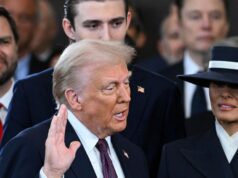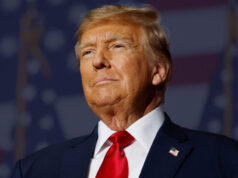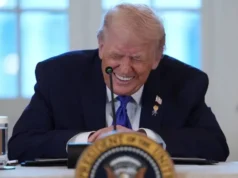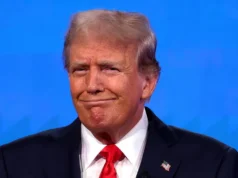Beijing has retaliated with new 125 percent penalties on U.S. imports in response to punishing U.S. tariffs that went into effect in April and have now increased to 145 percent on a number of Chinese goods.
China stated on Friday that it is considering a US invitation for tariff talks, but that Washington must be “sincere” and prepared to remove the duties that have shook supply networks and international markets.
Beijing has retaliated with new 125 percent penalties on U.S. imports in response to punishing U.S. tariffs that went into effect in April and have now increased to 145 percent on a number of Chinese goods.
US tariffs have temporarily been lifted on high-end tech products like computers, semiconductors, and smartphones.
US President Donald Trump stated this week that he thought there was a “very good chance we’re going to make a deal” after claiming on multiple occasions that China has approached him for discussions on the tariffs.
The US reached out, and Beijing’s trade ministry acknowledged Friday that it was “currently evaluating” the offer.
However, it stated that any negotiations would first need the US to be sincere.
The US should be willing to rescind unilateral tariffs, rectify its wrongdoings, and demonstrate its sincerity if it want to engage in dialogue, the ministry stated.
“In any possible dialogue or talks, if the US side does not correct its wrong unilateral tariff measures, it just means the US side is completely insincere and will further damage the mutual trust between the two sides,” it stated.
“Saying one thing and doing another, or even attempting coercion and blackmail under the guise of talks will not work,” the ministry of trade stated.
There is a 90-day window ending in July for dozens of nations to reach a deal with Washington and prevent higher, nation-specific fees.
However, Beijing had promised to “never kneel down!” in a video released on social media this week by its foreign ministry, indicating that it will fight a trade war to the end if necessary.
Its economy, which has historically relied on exports, has been stressed by global economic ups and downs, and officials have admitted that businesses that deal with foreign countries are having trouble.
Beijing blamed a “sharp shift” in the global economy for the April decline in factory activity, according to data released this week.
In March, Chinese exports increased by over 12 percent as companies scrambled to beat the fluctuating levies.







